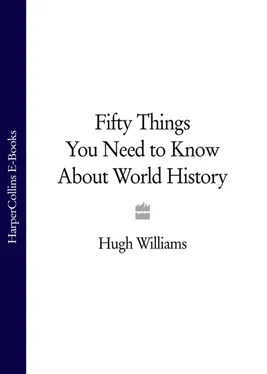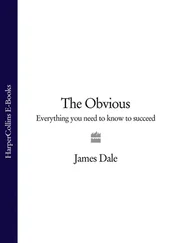At the time Kay was viewed as just another clever man with expensive ideas.
Kay went on to invent several other pieces of equipment that were used to improve the efficiency of the textile industry, but he does not appear to have made any money out of any of them. He seems to have been a rather difficult and quarrelsome individual. He tried to charge hefty royalties for his Flying Shuttle, but manufacturers either refused to pay or simply copied his invention. Kay went to France to try his luck there, but ran up against the same problems as he had at home. His genius for invention does not seem to have transferred to the world of business and his death in France in about 1780 went unrecorded. Only time has given him his place in history. While he lived he was viewed as just another clever man with expensive ideas.
His ideas, and many of those that followed, such as Richard Arkwright’s Spinning Jenny, helped create the Industrial Revolution – described by the historian E. J. Hobsbawm as ‘the most important event in world history’. Britain was perfectly placed to lead it. During the second half of the eighteenth century, at the same time as industrialisation began to increase, large parts of its agricultural land fell into the hands of only a few landlords. The Enclosure Acts created a system of large estates farmed by tenants or smallholders who no longer owned the land themselves. The peasant class, like the one in France that played an important part in the French Revolution of 1789, did not exist in Britain. Farming had succumbed to the power of the market. The country was a nation of traders – or ‘shopkeepers’ in Napoleon’s famously dismissive phrase – where labour moved comparatively freely to support each new commercial opportunity. The textile industry provided many of these. The Industrial Revolution was built on the colossal expansion of the manufacture of cotton, as Britain became its biggest exporter throughout the world. The mill became a symbol of both prosperity and despair, the scene of many famous Victorian novels about life in Britain in the nineteenth century. Coketown in Charles Dickens’s Hard Times is typical. It had, he tells us, ‘a river that ran purple with ill-smelling dye’, and in the mills where ‘the hands’ worked long, cramped and unhealthy hours, ‘the piston of the steam-engine worked monotonously up and down, like the head of an elephant in a state of melancholy madness’. Dickens, writing ten years after Engels published his book about the working classes, echoed his concern for the state of Britain’s labouring poor, although he probably would not have agreed with Engels’s observation that the result of its exploitation had to be ‘a revolution in comparison with which the French Revolution, and the year 1794 (the year of the Great Terror), will prove to have been child’s play’.
That revolution eventually happened, but in Russia, not Britain. The country managed to absorb the surge in population and prosperity that the long cycle of industrialisation created. By the second half of the nineteenth century, many British writers and thinkers had come to realise that it had resulted in an unequal distribution of wealth that needed reform. The economic historian and passionate social reformer, Arnold Toynbee, whose book The Industrial Revolution was highly influential when it came out in 1884, set the tone when, talking about the working classes in a lecture in London, said, addressing them directly:
We – the middle classes, I mean not merely the very rich – we have neglected you; instead of justice we have offered you charity, and instead of sympathy we have offered you hard and unreal advice … You have – I say it clearly and advisedly – you have to forgive us, for we have wronged you; we have sinned against you grievously but if you will forgive us, nay whether you will or not, we will serve you, we will devote our lives to your service, and we cannot do more.
Such highly emotional and deeply felt calls for a change helped alleviate the social distress that accompanied the nation’s riches. The Victorian Age was often harsh and hypocritical, but it was fuelled by a determination for improvement as well.
By the end of the nineteenth century, Britain’s commercial supremacy around the world was beginning to face strong competition as other European countries began to catch up. After the end of the First World War in 1918, although Britain still called itself an empire, its problems were predominately national rather than global. But the Industrial Revolution continued, and is still continuing. New forms of energy – oil, gas and nuclear – have replaced steam. In our own time, the microchip has transformed our whole world of technology. If this sprawling, never-ending march of mechanisation can be said to have a beginning, it can be found as well as anywhere in John Kay’s simple invention which, as the bulky memorial to him in his home town of Bury observes, ‘quadrupled human power in weaving and placed England in the front rank as the best market in the world for textile manufactures’. Unveiled in 1908, the thirty-four-feet high monument is testament to the pride Bury feels for its famous son who died in France, though no one knows quite when, and is buried, though no one knows where.
CHAPTER 7
The Foundation of Oil City, Pennsylvania 1859
In 1859 the world’s first commercially successful oil well was drilled in Titusville, Pennsylvania. The world discovered a commodity that would become one of the most valuable it had ever known.
In the late 1850s a former railway conductor called Edwin Drake turned up in the small community of Titusville, Pennsylvania in the United States. He had been sent there by a speculator who wanted him to see if oil could be extracted from the rocks in the area. Local farmers had complained for years that oil seepage polluted their wells. If its source could be located and extracted it could turn out to be a lucrative business opportunity. The speculator, James Townsend, had seen a report from a Yale University chemistry professor which said that oil, once refined, could be used for lighting, lubrication and other purposes. Townsend seems to have liked running his investments on a shoestring. The story goes that he only hired Drake because as a former employee he had a free pass on the railway.
Drake used his steam engine to drill for six days a week.
For the best part of a year Drake experimented with ways of trying to get to the oil, including using the money from his backer and his associates to buy a steam engine to bore down into the rock. They decided against giving him any more advances once he had spent the equivalent of $2,000 without any results – so Drake pressed on with funding the exploration from his own savings. Throughout the summer of 1859 he used his steam engine to drill for six days a week. When water flooded his borehole he drove down an iron pipe to protect his drill. On 27th August, at a depth of nearly seventy feet, he found what he had been looking for. Oil bubbled up to meet him: the world had discovered a new supply of fuel.
Oil bubbled up to meet him [Drake]: the world had discovered a new supply of fuel.
The Pennsylvania oil well was the first successful commercial enterprise, but drilling for oil had already begun on the other side of the world. Russian engineers had started sinking wells ten years earlier on the Aspheron Peninsula near Baku in Azerbaijan. In 1846 they reported to the Tsar that they had been successful, but development thereafter was rather slow. Imperial permission for drilling more wells was not given until more than twenty years later when Azerbaijan began to grow into a huge oil-producing area. By the end of the nineteenth century, Russia was competing with the United States as the world’s biggest producer of oil: in 1900 it was producing 11.5 million tons a year compared to America’s 9.1 million, but after the Bolshevik Revolution, oil production was diverted to domestic needs. The market, and the money that went with it, was left to America.
Читать дальше












